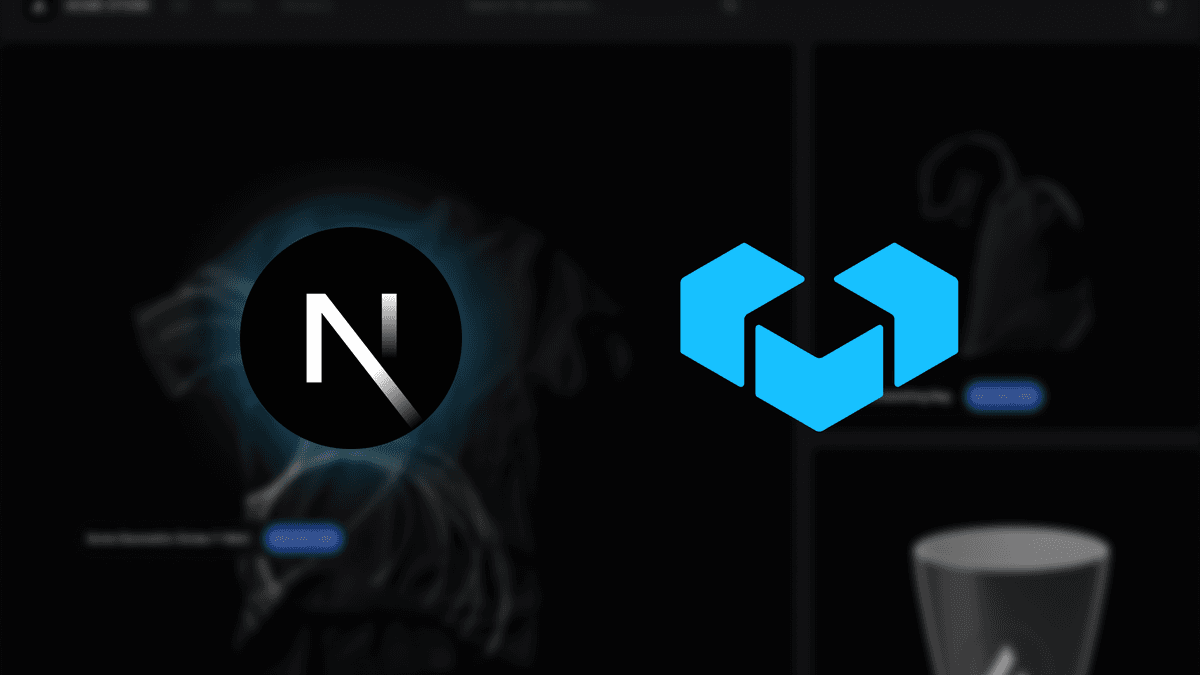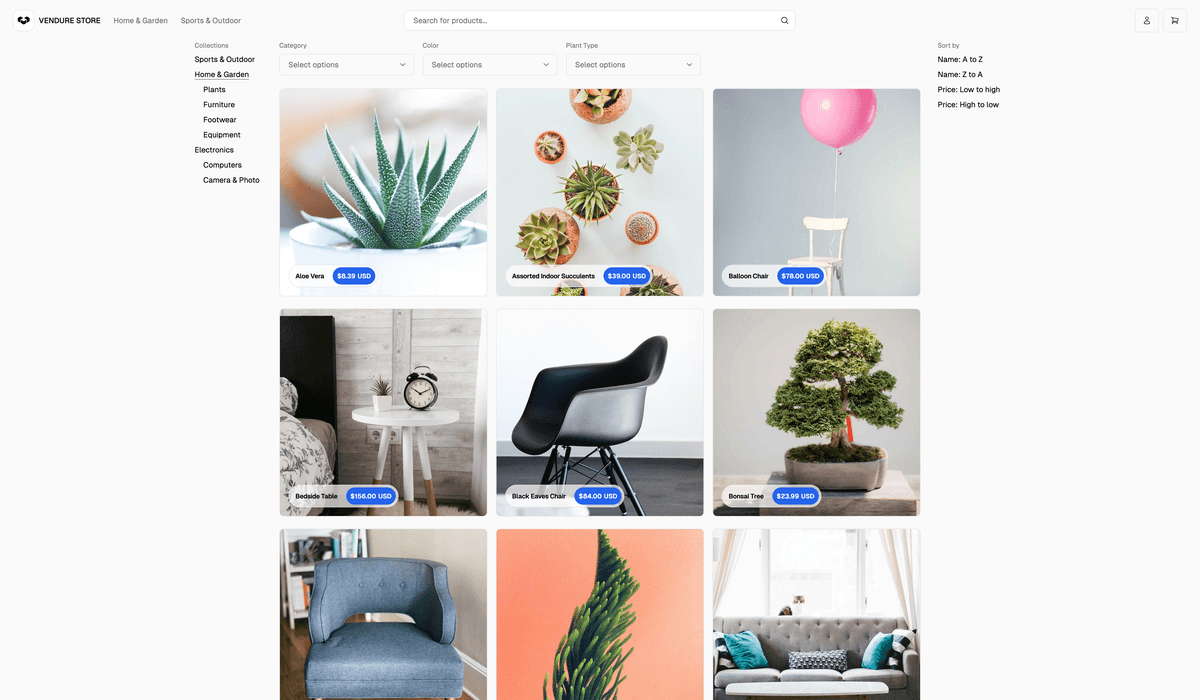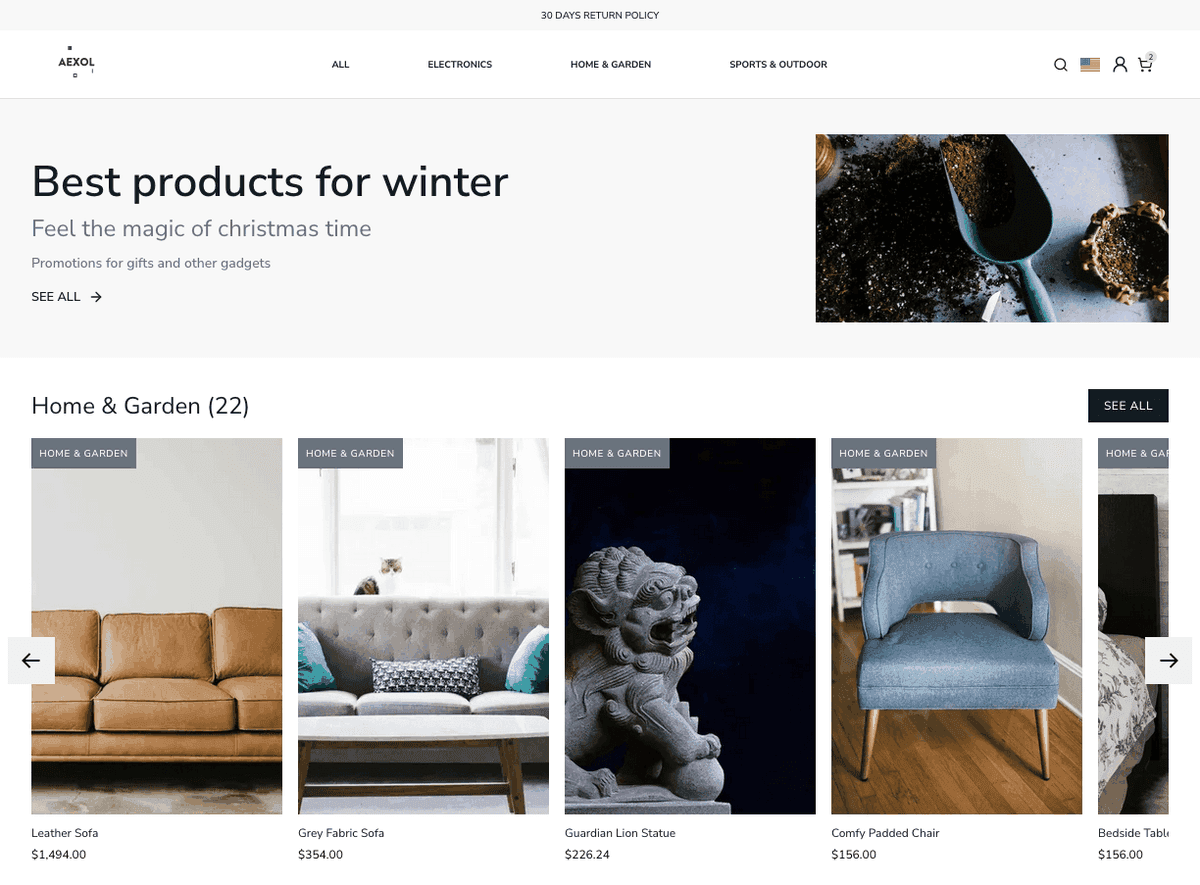Next.js eCommerce: Build Your Modern Storefront in 2025

Why Next.js Has Become the Go-To Framework for Ecommerce
Next.js has emerged as the preferred framework for building modern ecommerce storefronts, and the numbers tell a compelling story. Companies using Next.js report 50-70% improvements in First Contentful Paint (FCP) and 40% reductions in Time to Interactive (TTI) compared to traditional React apps. These performance gains translate directly into better conversion rates and improved search rankings.
The framework's versatility sets it apart. Whether you need server-side rendering for dynamic product pages, static generation for category listings, or incremental static regeneration for inventory updates, Next.js handles it all seamlessly. This flexibility makes it the perfect foundation for headless commerce implementations, where your frontend needs to integrate smoothly with various backend systems.
Understanding Headless Commerce Architecture
Before diving into specific templates, it's crucial to understand why headless commerce has become the architecture of choice for forward-thinking brands. By decoupling the frontend from the backend, development teams can build and launch customer-facing experiences without being held back by backend limitations. This separation enables teams to work independently, accelerating development cycles and fostering innovation.
The benefits extend beyond development speed. Companies utilizing headless architectures have observed a 23% reduction in bounce rates, indicating improved user engagement. This improvement comes from the ability to optimize your storefront independently, leveraging modern technologies while maintaining stable backend operations.
Vendure's Next.js Storefront Solutions
Vendure, as a leading open-source headless commerce platform, offers developers multiple pathways to create stunning Next.js storefronts. Built with TypeScript and GraphQL, Vendure provides the robust backend infrastructure your ecommerce site needs while giving you complete freedom in frontend development.
Current Storefront Options
Vendure currently maintains two production-ready next js ecommerce template solutions:
Vercel Commerce Integration: The official Vendure integration for Next.js Commerce provides a full-featured, modern storefront that's been battle-tested by major brands. This template leverages Vercel's optimized infrastructure for maximum performance, delivering the speed and scalability modern ecommerce demands.
Aexol's Storefront Starter: The community-driven Next.js storefront by Aexol offers a comprehensive starting point with built-in features like multi-language support, advanced product filtering, and a clean, customizable design system. It's particularly well-suited for developers who want more control over their implementation details.
The Future: Vendure's Sophisticated Next.js Storefront
Vendure is developing an advanced Next.js storefront scheduled for release in early November 2025. This new template will represent a significant leap forward, combining years of community feedback with cutting-edge ecommerce features. Developers interested in early access can sign up for the newsletter to be notified immediately upon release.
Essential Features of Modern Ecommerce Templates
When evaluating a Next.js ecommerce template free or premium option, certain features have become non-negotiable for competitive online stores.
Performance Optimization
Studies show that even a 1-second delay in page load time can lead to a 7% drop in conversions. Modern Next.js templates address this through automatic code splitting, image optimization, and intelligent caching strategies. The best templates implement edge caching for static assets while maintaining real-time inventory updates through incremental static regeneration.
SEO and Core Web Vitals
Search visibility drives organic traffic, and Next.js excels here. 89% of teams using Next.js met Google's Core Web Vitals thresholds on their first deployment attempt, compared to just 52% with other frameworks. Templates that properly implement server-side rendering ensure search engines receive fully rendered HTML content, dramatically improving indexability and rankings.
Omnichannel Capabilities
Today's shoppers move seamlessly between devices and channels. Your Next.js ecommerce template solution needs to support this journey. Look for templates that offer Progressive Web App (PWA) capabilities, enabling app-like experiences on mobile devices while maintaining a single codebase.
Building vs. Using Templates: Making the Right Choice
The decision between building from scratch and using a template depends on several factors. Templates provide immediate value through pre-built components, established design patterns, and proven architectures. They're particularly valuable when time-to-market is critical or when your team lacks specific ecommerce expertise.
However, starting with a template doesn't mean sacrificing customization. Modern Next.js ecommerce starter templates are designed as foundations, not finished products. They provide the scaffolding and best practices while leaving room for your unique business logic and brand identity.
Integration Capabilities That Matter
Your ecommerce platform doesn't exist in isolation. Modern storefronts need to connect with payment providers, inventory systems, marketing tools, and analytics platforms. Vendure's plugin architecture makes these integrations straightforward, with pre-built connectors for popular services like Stripe, PayPal, and Avalara.
The headless approach shines here. API-first architecture allows merchants to cherry-pick the best services in their niches and customize their headless commerce solution to make it exactly what they need. Whether you're integrating with a CMS like Strapi for content management, implementing search with Algolia, or connecting to your existing ERP, the flexibility is unparalleled.
Developer Experience and Productivity
The best Next.js ecommerce templates solutions prioritize developer experience with TypeScript. Clean code structure, comprehensive documentation, and active community support accelerate development and reduce maintenance burden. Vendure's TypeScript-first approach ensures type safety throughout your application, catching errors at compile time rather than in production.
Modern templates also embrace component-driven development. Reusable components for product cards, cart functionality, and checkout flows mean you're not reinventing the wheel. Instead, you're customizing proven patterns to match your brand requirements.
Performance Metrics That Drive Success
Understanding performance impact helps justify technology choices. Headless commerce boosts the performance and efficiency of any business by 50% and improves ROI by 47%. These aren't just vanity metrics, they represent real improvements in user experience and business outcomes.
Consider implementing these performance best practices:
- Lazy loading for images and non-critical components
- Dynamic imports for route-based code splitting
- Edge caching through CDN providers
- Optimistic UI updates for cart interactions
- Background prefetching for likely next pages
Scaling Your Next.js Ecommerce Platform
Growth brings challenges, but a well-architected Next.js ecommerce template scales gracefully. Vendure's architecture supports everything from small boutiques to enterprise marketplaces, handling millions of products and concurrent users without breaking a sweat.
Key scaling considerations include:
Database Optimization
Efficient queries and proper indexing become critical as your catalog grows. Vendure's built-in query optimization and support for read replicas ensure database performance doesn't become a bottleneck.
Caching Strategies
Implement multi-layer caching from CDN edge nodes to application-level caches. The combination of Next.js ISR and Vendure's intelligent caching delivers consistent sub-second response times.
Infrastructure Flexibility
Whether deploying to Vercel, AWS, or your own infrastructure, maintain deployment flexibility. Container-based deployments enable horizontal scaling during traffic spikes while controlling costs during quiet periods.
Security and Compliance Considerations
Ecommerce platforms handle sensitive customer data, making security paramount. Modern Next.js ecommerce boilerplates must implement robust security measures including HTTPS everywhere, secure payment tokenization, and PCI compliance when handling card data.
Vendure addresses these concerns through built-in security features, regular security updates, and a transparent open-source model that enables community security audits. Combined with Next.js's secure-by-default configuration, you're starting from a strong security foundation.
Making the Transition to Headless Commerce
If you're currently using a monolithic platform, the transition to headless might seem daunting. However, the long-term benefits justify the investment. Cost-effectiveness is a notable benefit. With fewer constraints on development and maintenance, businesses save on infrastructure and operational expenses.
Start with a phased approach:
- Evaluate your current pain points – identify what's limiting your growth
- Choose your backend platform – Vendure offers the flexibility and features modern ecommerce requires
- Select your frontend framework – Next.js provides the performance and developer experience you need
- Begin with a pilot project – perhaps a specific product category or geographic market
- Iterate and expand – gradually migrate more functionality as you gain confidence
Future-Proofing Your eCommerce Investment
The ecommerce landscape continues evolving rapidly. For example, AI-powered personalization is moving from experiments to expectations. Your platform choice today needs to accommodate tomorrow's innovations.
By 2025, 60% of major retailers in North America are expected to adopt headless platforms, reflecting a significant shift towards this architecture in the retail sector. This trend isn't just about following the crowd – it's about positioning your business for sustainable growth.
Getting Started with Vendure and Next.js
Ready to build your next-generation ecommerce platform? Here's your roadmap:
- Explore the documentation – Vendure's comprehensive docs cover everything from initial setup to advanced customization
- Join the community – The Vendure Discord and forums provide real-time support from developers worldwide
- Start with a template – Use the Vercel Commerce integration or Aexol starter as your foundation
- Customize incrementally – Add your unique features and integrations step by step
- Launch and iterate – Modern deployment platforms enable continuous improvement
Conclusion: Your Path to eCommerce Excellence
Choosing the right Next.js ecommerce template sets the foundation for your online success. With Vendure's powerful backend, Next.js's exceptional frontend capabilities, and a thriving ecosystem of integrations, you have everything needed to create exceptional shopping experiences.
The combination of headless architecture, modern development practices, and performance optimization positions your store for both immediate success and long-term growth. Whether you're launching a new venture or modernizing an existing platform, the Next.js and Vendure stack delivers the flexibility, performance, and scalability modern ecommerce demands.
Don't wait to modernize your ecommerce platform. Sign up for updates about Vendure's upcoming sophisticated Next.js storefront, and start building the shopping experiences your customers deserve. The future of ecommerce is headless, performant, and built with Next.js – make sure you're part of it.
Ready to transform your ecommerce platform? Explore Vendure's solutions and discover how modern headless commerce can accelerate your growth. For developers seeking to dive deeper, check out our case studies showcasing real-world implementations.
Share this resource

